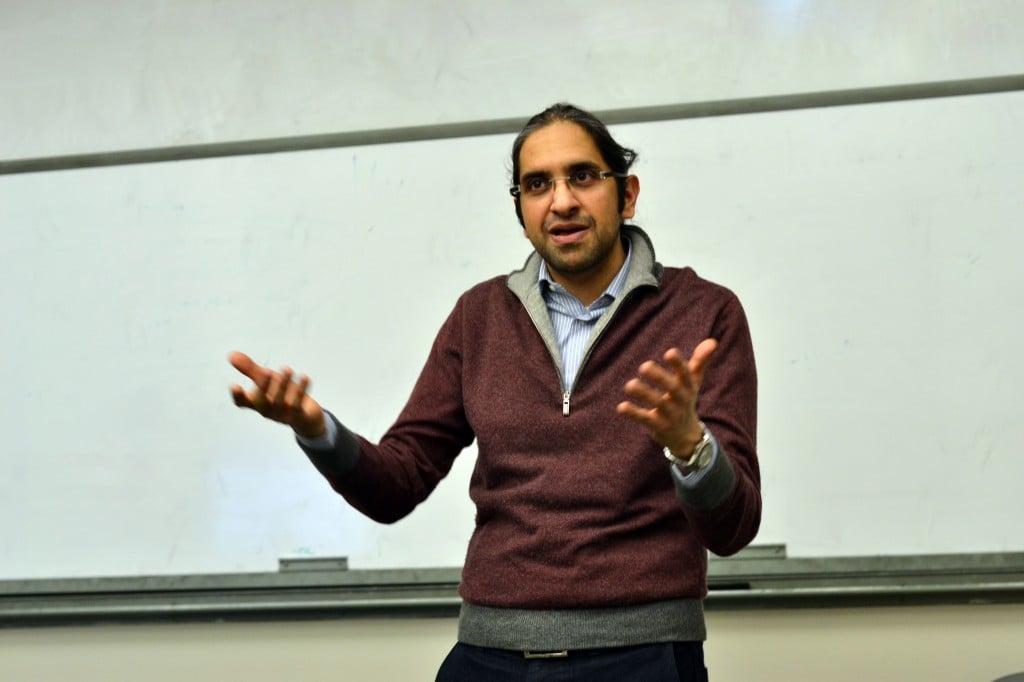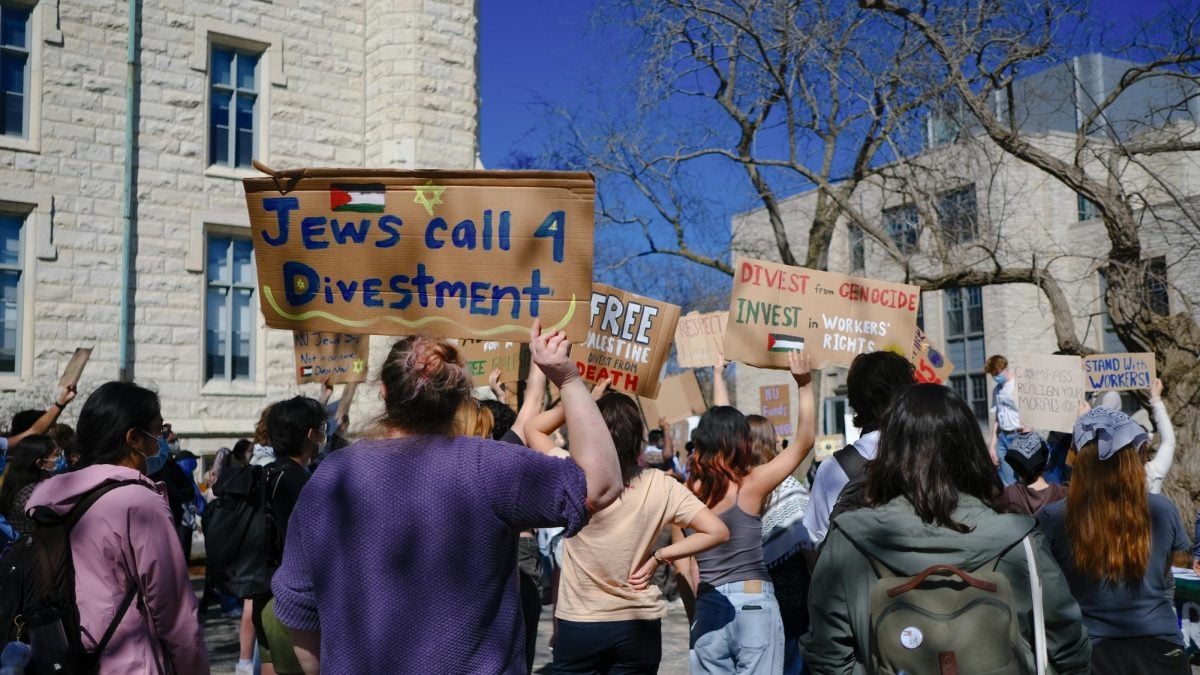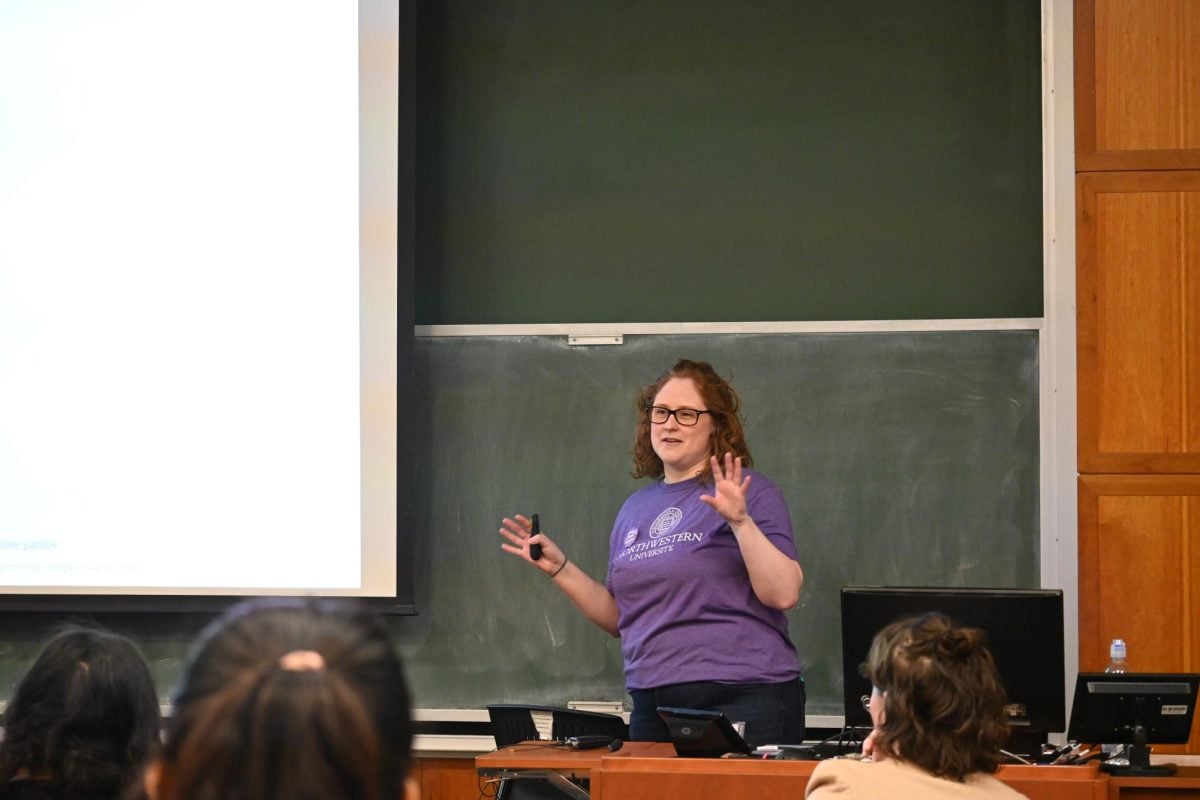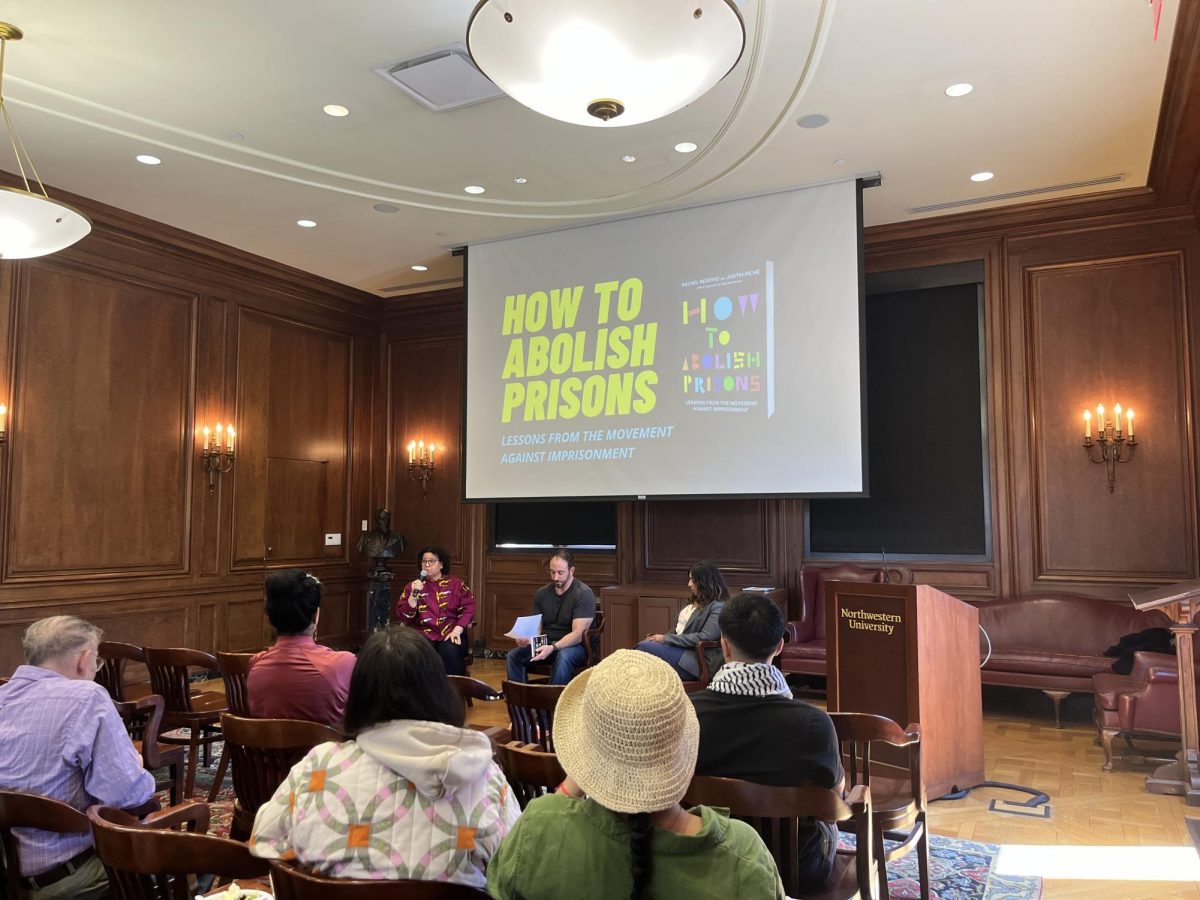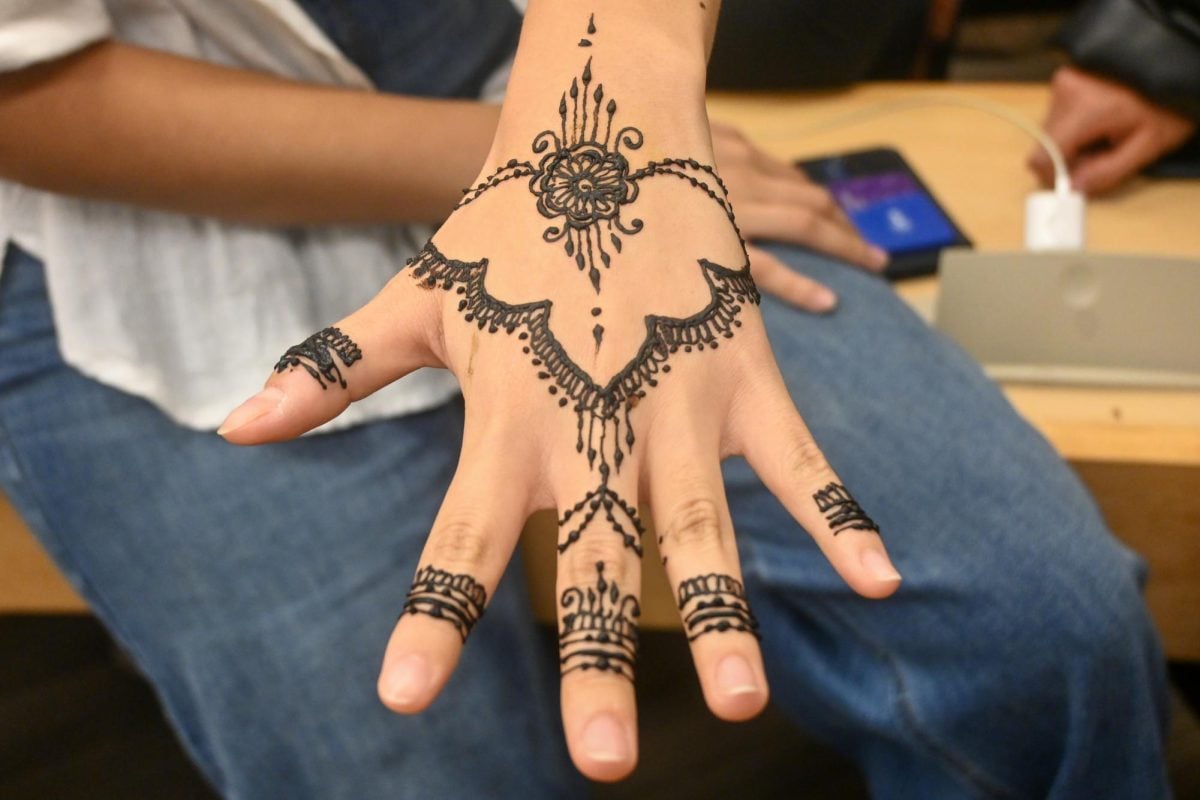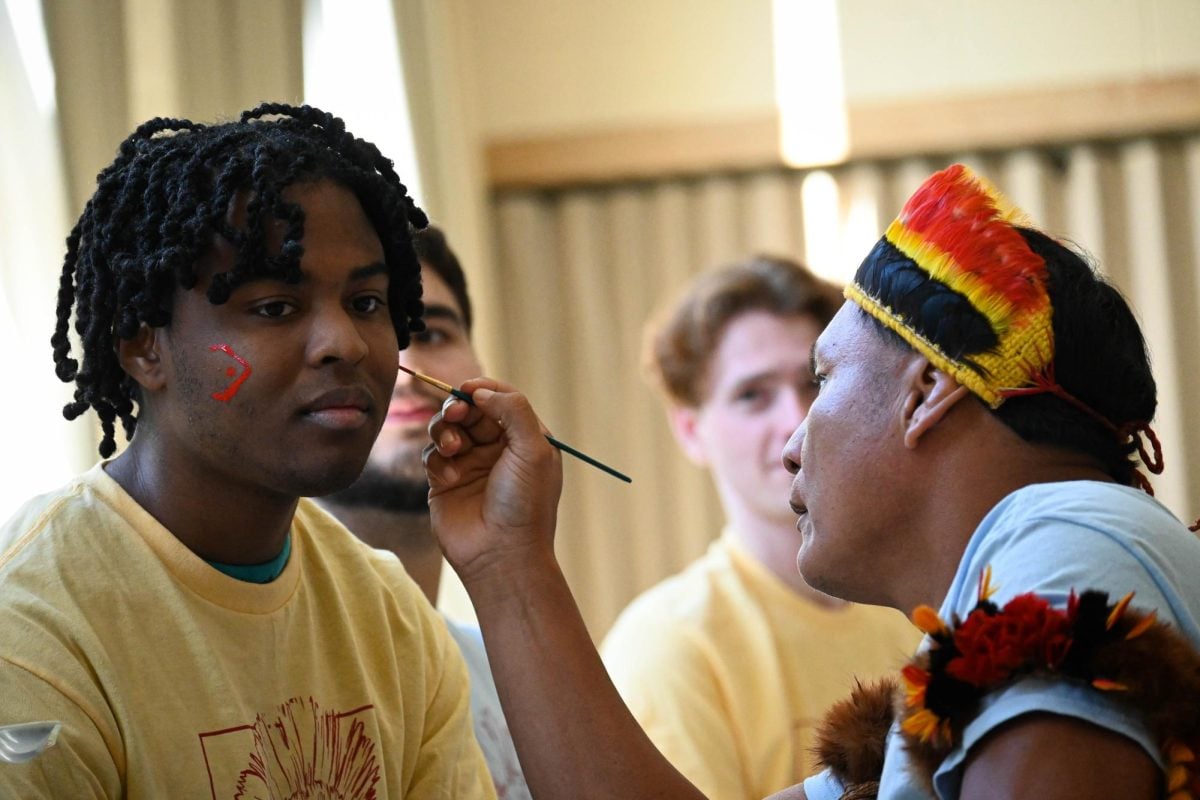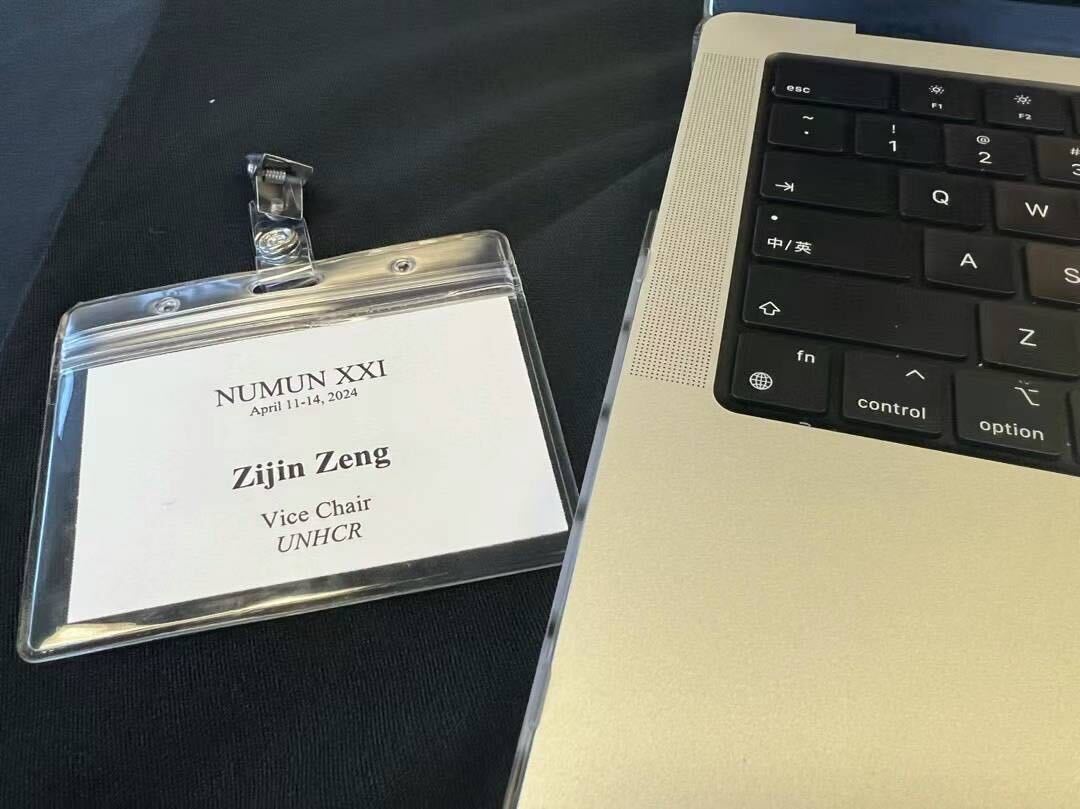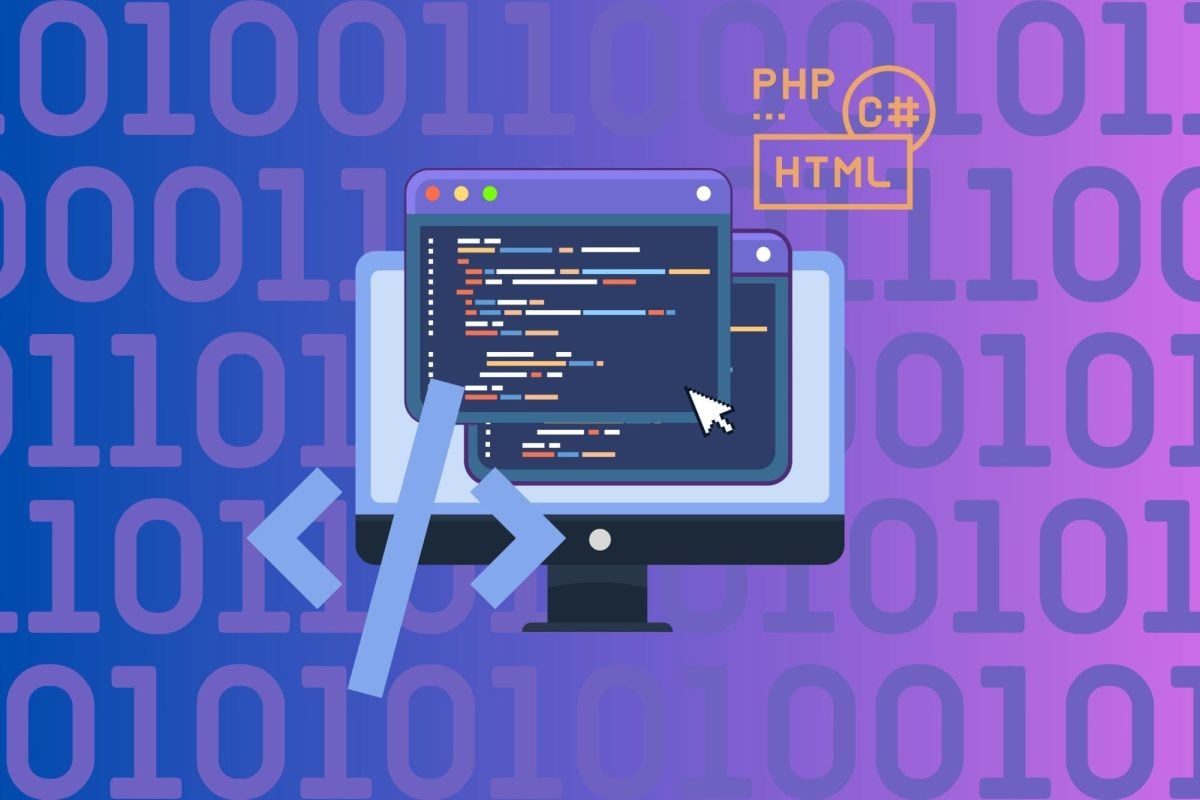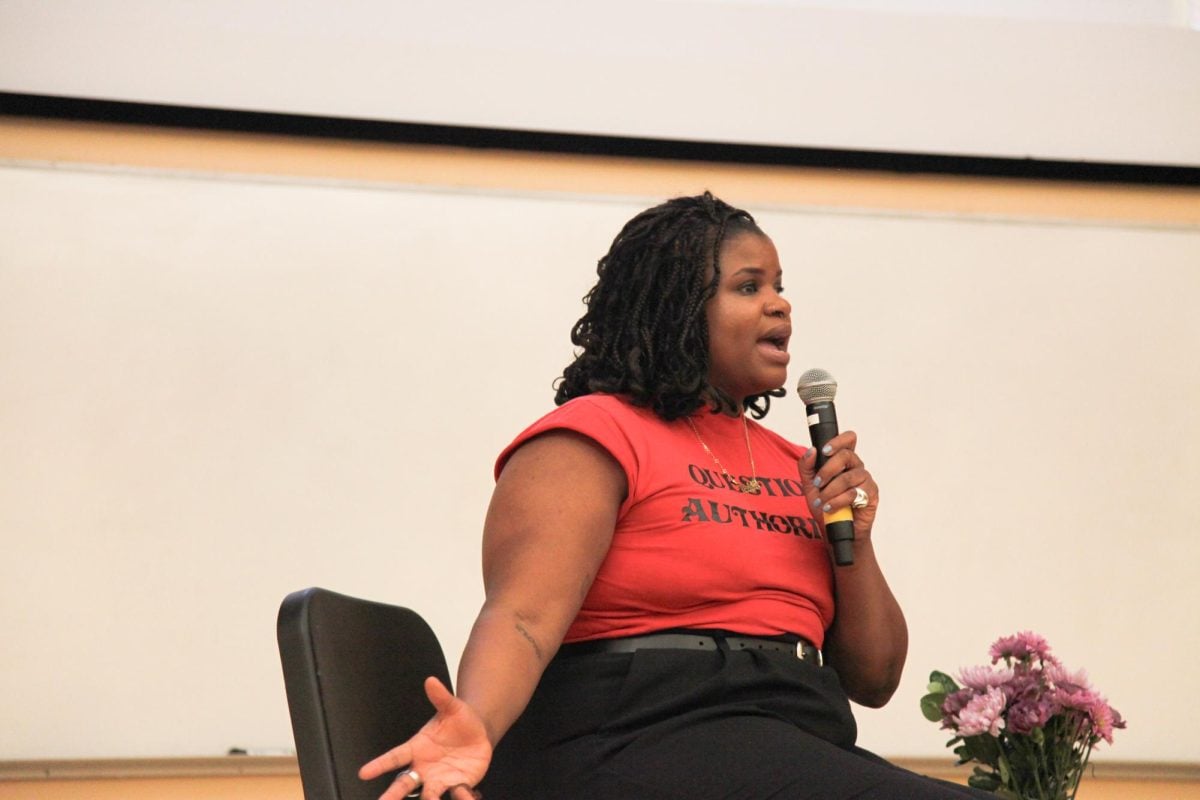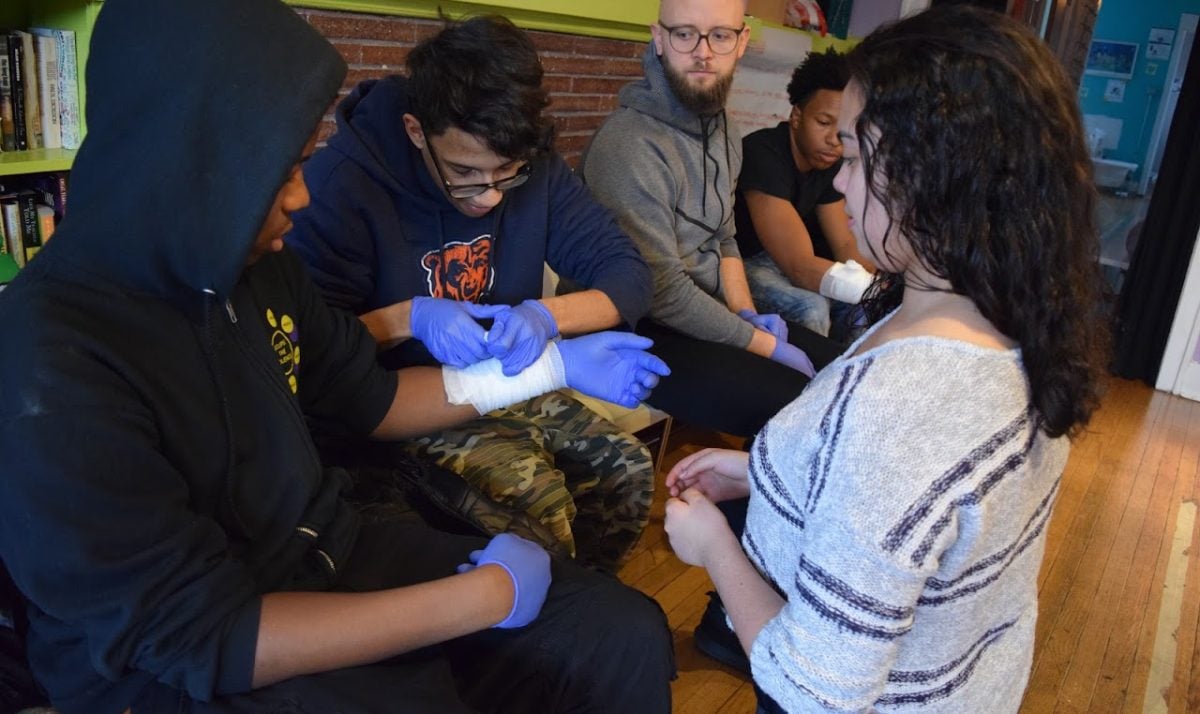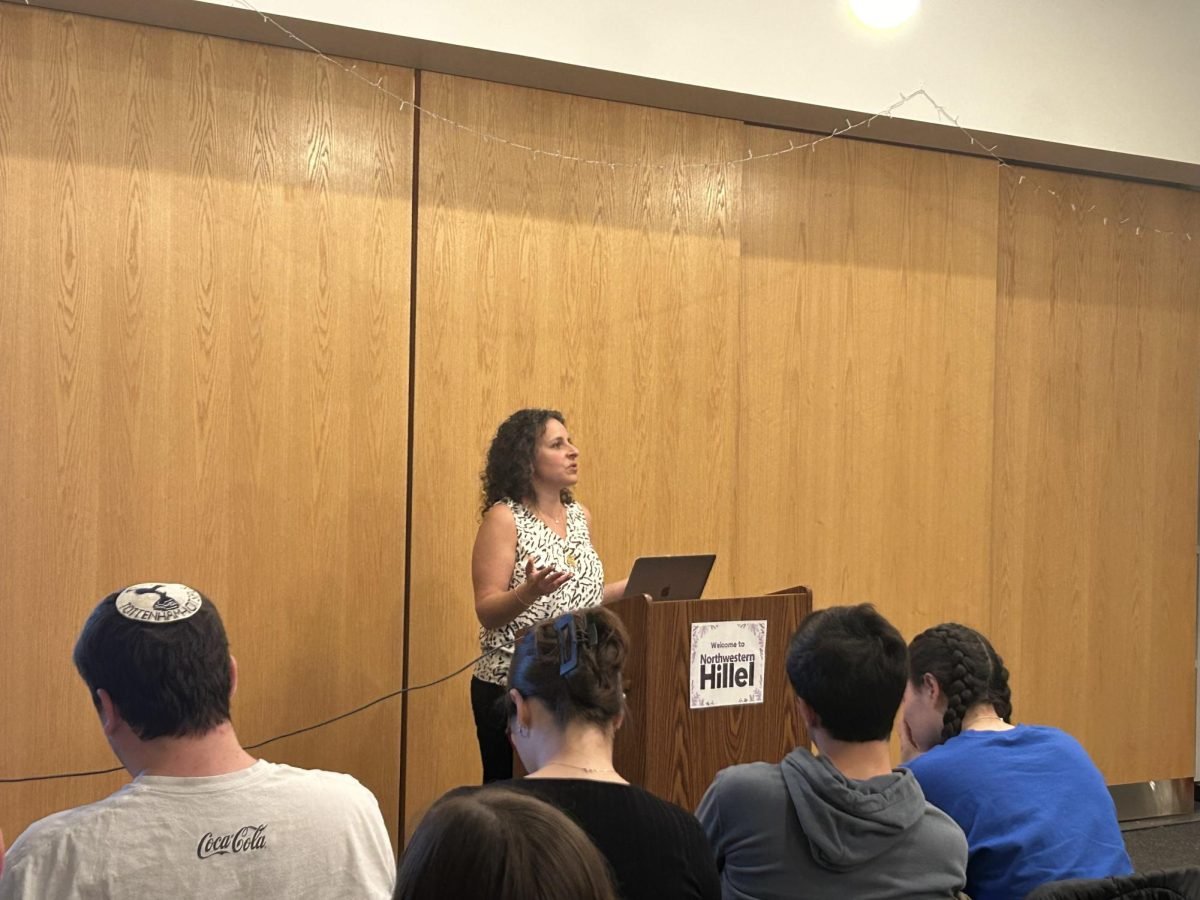Sultan Sooud Al-Qassemi, a celebrated political commentator from the United Arab Emirates, opened his discussion Wednesday speaking of the Arab Spring and its impact by discussing social media’s role in facilitating the flow of information.
Students for Justice in Palestine and the Model Arab League brought Al-Qassemi to Northwestern for “The Arab Revolutions: What’s Next?” to talk about the state of the Middle East after the widespread unrest. Al-Qassemi stressed that although social media did not cause the uprisings, it was an important tool in the rash of revolutions that became known as the Arab Spring. Nearly 40 people sat in the audience at University Hall.
“In the beginning, social media was a place that ordinary people had to themselves,” Al-Qassemi said. “Now, governments have hired hundreds of workers to monitor websites. Bahrain jails people for liking photos (on Facebook).”
Although the media has called the series of revolutions in the Middle East the Arab Spring, Al-Qassemi doesn’t use the term, instead labeling the instability in the region as the “Arab Uprisings.”
During the last two years, longtime rulers of Tunisia, Egypt, Libya and Yemen have been forced out of power, and major uprisings have started in Bahrain and Syria.
In the resulting power vacuum, distinct branches of the original opposition are vying for prominence.
“The story of the Middle East today is the clash between the Muslim Brotherhood and the Salafis,” Al-Qassemi said. “They are both Sunnis, but there are big differences between the two parties.”
The Muslim Brotherhood is the largest and most organized Islamist party while the Salafis, a highly conservative Islamic faction, “never disagree with their leader unless the leader orders them to break God’s laws,” Al-Qassemi said.
Al-Qassemi stressed the importance of the Gulf Cooperation Council, an organization of Arab states in the Arabian Peninsula that has increased its authority over the past several years.
“The Gulf states will dictate what happens in Syria and Palestine,” he said. “They are so wealthy, they can buy themselves out of any trouble.”
Al-Qassemi also noted the growing influence of smaller countries like Qatar, the United Arab Emirates and Kuwait.
“There’s been an Eastward power shift,” Al-Qassemi said. “Traditional leaders like Iraq and Saudi Arabia have been more reserved, while Qatar, which has built ties with political Islam and the Muslim Brotherhood, has been more gung-ho.”
In the future, Al-Qassemi predicts more turmoil as young Arabs demand civil rights and freedom of speech.
“The Arab uprisings are a generational issue, and the outcome is far from certain,” Al-Qassemi said. “We might see changes for the better or things might get worse, but either way, it’s going to be a struggle. When you have corruption and graft, uprisings are inevitable.”
Andrew Abtahi, president of the Model Arab League, enjoyed the talk.
“It’s great to see someone from the Middle East with liberal ideas because so often, we only hear very conservative voices,” the Weinberg junior [calculated from his LinkedIn] said. “He has so much information about what’s going on.”
The breadth of Al-Qassemi’s knowledge impressed Weinberg senior Mauricio Maluff.
“It’s really great to hear about the relationship between Salafis and the Muslim Brotherhood, especially because they have similar religious beliefs,” Maluff said. “He cut through the rhetoric and gave a clear, realpolitik version of what’s happening.”

